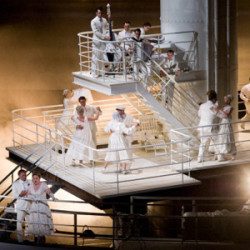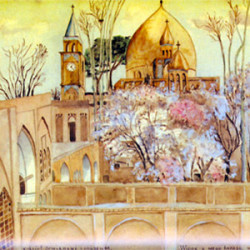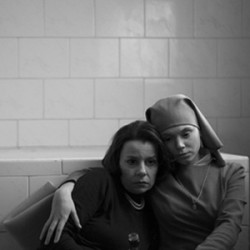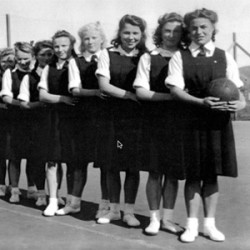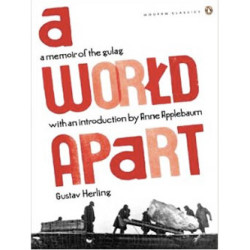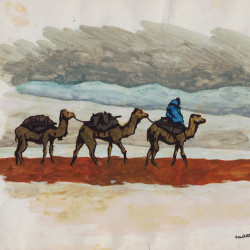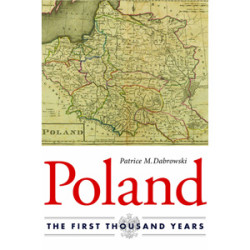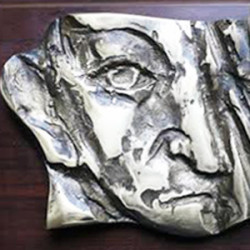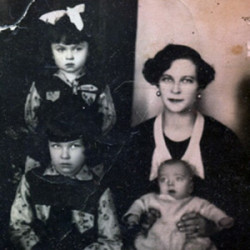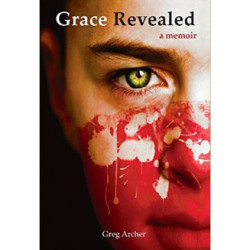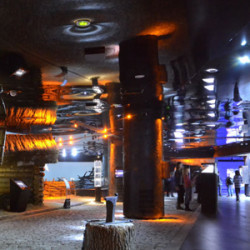2015 Vol. 7 No. 1 — Spring
by CR × on February 24, 2015 at 6:20 pm ×
Join the conversation about the quiet little film that took the noise capital of the world by storm, and about a startling opera that was long suppressed. Check out Silicon Valley and then gaze in awe at the sight of Poland’s little koniks, the descendants of the ancient Tarpans, as they are once again released into the wild. As always, cosmoPoles are everywhere (even the horses!), with great stories everywhere.
2015 Vol. 7 No. 1 — Spring / Music
Mieczysław Weinberg’s opera, The Passenger, is not only a complicated work of art, but a complicated work of historical trauma. Magda Romanska reviews the work with a brilliant survey that covers the opera, the history, the novel by Zofia Posmysz, the film by Andrzej Munk, and the responses to the production.
2015 Vol. 7 No. 1 — Spring / Features
They received gifts of dates, nuts, roasted peas with raisins, and juicy pomegranates; visited museums, mosques and bazaars; and were always greeted with kindness. All this in what has often been called the most beautiful city in the world.
2015 Vol. 7 No. 1 — Spring / Films
It’s a black-and-white film about a Polish Catholic nun that America didn’t ridicule but fell in love with. Agnieszka Niezgoda asks three members of the Academy, “Why?”
2015 Vol. 7 No. 1 — Spring / Features
It is important to understand the welcome practices of host countries and their treatment of child refugees, and the long-term well-being and adaptation of both the children and their host countries. Amanda Chalupa takes a look at what is possibly the gold standard, set by the people of New Zealand.
2015 Vol. 7 No. 1 — Spring / Books
Gustav Herling-Grudziński, Inmate No. 1872, wrote his powerful indictment of the Soviet system of penal camps, the GULAG, not as a description of nations at war, but as a conflict between barbarism and civilization. First published in 1951, this book was quietly but intentionally suppressed for decades.
2015 Vol. 7 No. 1 — Spring / Commentary / Features
When the Soviets deported Polish citizens from their zone of occupied Poland, the Poles began a journey that would cover several continents and oceans. Among the most amazing is the saga of the children’s odyssey.
2015 Vol. 7 No. 1 — Spring / Books
Patrice Dabrowski’s new history, written with her usual elegant style, refers to Poland with the pronoun “she” – but the Soviet-imposed regime as “it,” notes Nathan Wood, perhaps with a touch of disapproval. Now there’s a great discussion starter.
2015 Vol. 7 No. 1 — Spring / Features
Too many for bridge, too few for an insurrection. The only option left was to have fun… at a very high cultural level, of course. Meet The Helena Modjeska Art and Culture Club of Los Angeles.
2015 Vol. 7 No. 1 — Spring / Features
Beautiful, wise, accomplished, serene and very strong, Halina Babinska is as admired as she is modest. She credits the sensitive care she got in the Polish orphanage after World War II for her recovery to a normal and useful life.
2015 Vol. 7 No. 1 — Spring / Books / Interviews
Justine Jablonska catches Greg Archer in a serious moment, and the conversation ranges from Cyndi Lauper and Ewan McGregor to his indomitable family and the after-effects of war.
2015 Vol. 7 No. 1 — Spring / Books
Fast-paced, sometimes self-indulgent but at times furiously funny, Greg Archer looks at his family’s traumatic experience in the Soviet gulag after years of running away from it.
2015 Vol. 7 No. 1 — Spring / Bulletin Board
by CR × on February 24, 2015 at 2:00 pm ×
Modjeska Monteith Simkins; Polin, Warsaw’s Museum of the History of Polish Jews; 11 Must-See Modern Museums in Poland; Sir Andrzej Panufnik; Mariusz Trelinski directs two operas at New York’s Met; the Witcher 3; and the centrality of Eastern European studies.

